AMERICA OBSCURA (10)
By:
December 30, 2016
HILOBROW friend Andrew Hultkrans is a legendary freelance journalist; we have admired his range, erudition, and virtuosity since the early ’90s, when he was a columnist at MONDO 2000. We’re proud to publish this series of essays by Andrew, each of which originally appeared (as noted) elsewhere.
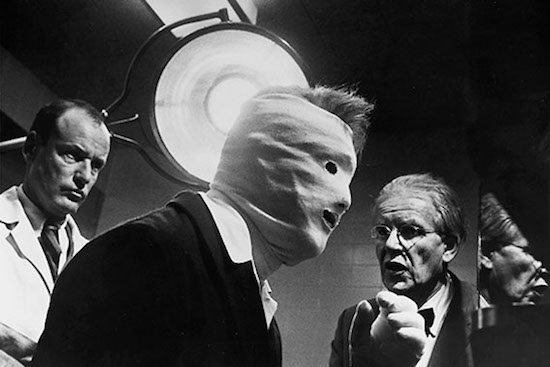
Not the Little Boy I Once Knew:
Innocence and Experience in the Music of Brian Wilson
“Hello, Mr. Wilson…”
Sometime in the spring of 1967, Brian Wilson, the pop wunderkind behind the music of the Beach Boys, heard these words as he wandered into a screening of the John Frankenheimer film Seconds. He was, at the time, sporadically working on what was to become the most legendary unreleased album in rock history, originally titled Dumb Angel but later called Smile, and he was losing his mind. According to a friend who was at Wilson’s house when he returned from the movie theater, Seconds had a profound effect on the young composer.
Agitated, Wilson related how the first thing he heard was someone saying hello to him. “It completely blew my mind,” he said. Then: “That’s not all… the whole thing was there. I mean my whole life. Birth and death and rebirth. Even the beach was in it. It was my whole life right there on the screen.” When his friend suggested it might be a coincidence, Wilson replied, “What if it’s real? You know there’s mind gangsters these days. There could be mind gangsters, couldn’t there? I mean look at [Phil] Spector, he could be involved, couldn’t he? He’s going into films. How hard would it be for him to set something up like that?”

Convinced to calm down, Wilson picked up a pen and a piece of paper and drew a growth curve as he began to talk about music: “Spector started the whole thing. He was the first one to use the studio. But I’ve gone beyond him now. I’m doing the spiritual sound, a white spiritual sound. Religious music. Did you hear the Beatles’ album [Revolver]? Religious, right? That’s the whole movement. That’s where I’m going…. It’s going to scare a lot of people when I get there.”
In the previous year, Wilson had reached two artistic peaks: he had written, arranged, and produced Pet Sounds, an album that introduced new levels of orchestration and harmonic sophistication to rock music, and had followed it with the single “Good Vibrations,” a multi-movement “pocket symphony” that employed modular recording (fragments of the song were recorded over five months at several studios), experimental editing, and the unearthly howl of a Theremin. In between sessions for “Good Vibrations,” Wilson began working on Smile, a spiritual song cycle that would evoke the innocence of youth — a “teenage symphony to God.” To counter the Beatles and the British bands and fashions that ruled these shores in 1966, Wilson wanted the music to be distinctly American, but not in the way that “Surfin’ U.S.A.” and “California Girls” were American.

Concerned about the country’s lost innocence in the wake of the JFK assassination and the rapidly escalating Vietnam conflict, Wilson sought to recapture the optimism and homespun simplicity of nineteenth-century Americana (one of the tracks would be called “Cabinessence”). To this end, he began to collaborate with a similarly prodigious talent, Van Dyke Parks, whose “American Gothic trip,” a Randy Newman-esque fascination with early American music, the Deep South, and the pioneer West, jibed with his intentions for the album. With Parks as his lyricist and sounding board, Wilson set about writing and recording Smile in May 1966.
He also came seriously unhinged. In the following months, he would build a custom sandbox in his dining room to house his grand piano; replace all of his living room furniture with gym mats and exercise equipment (which he then never used); buy boxloads of identical children’s dolls (which he then never opened); hold Al Jardine, the squarest Beach Boy, captive in his car as he drove around the parking lot twenty times, raving about an LSD trip he had just taken; insist that his studio musicians wear firemen’s helmets for the duration of a recording session; scrap the resulting “Fire” music because he believed it had caused a rash of fires around LA; banish an acquaintance’s girlfriend from the studio because he thought she was a witch who was “messing with his brain” by means of ESP; and, as ever, worry about Phil Spector, playing “Be My Baby” over and over again, as if dum-da-dum-cha signaled the beginning of a mystical Morse code that would transmit the secrets of the universe.
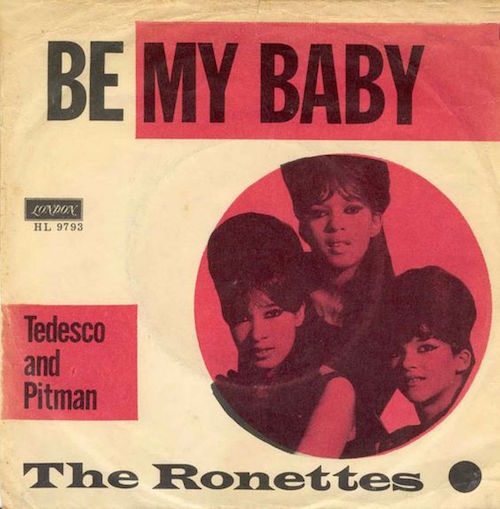
Paranoia about “mind gangsters” aside, it isn’t difficult to see why Seconds got under Wilson’s skin. A dark, mildly psychedelic film reminiscent of The Twilight Zone, Seconds is the tale of Arthur Hamilton, an unbearably bland, world-weary middle-aged banker — the ultimate “man in the gray flannel suit” — who is lured by an old friend into literally signing his life away to a shadowy company that offers “rebirth” services. In exchange for thirty thousand dollars, the company stages a death, provides a plausible corpse, and awards the remaining family a handsome insurance settlement. The client then receives extensive plastic surgery, a manufactured personal history, a dream career (based on subconscious wishes teased out through sodium pentothal and regression therapy), and a well-appointed home in a ritzy community. (Emphasizing just how extensive the plastic surgery really is, the surgeon — played by the actor who would later portray Oscar Goldman in The Six Million Dollar Man — says, in an insinuating tone, “Everything is different.”) Through this procedure, Hamilton is transformed into an inconspicuously successful artist named Tony Wilson, played by Rock Hudson, and set up in a swank Malibu beach house, complete with personal assistant.
He was a quiet man. It was as if he was always listening to something inside, some voice…. He fought so hard for what he’d been taught to want, and when he got it he just grew more and more confused. — Arthur Hamilton’s wife, recalling her “late” husband in Seconds
Though hardly the work of Phil Spector, the film’s parallels to Wilson’s life are eerie (beginning with the casting of Hudson, known for his romantic comedies with Doris Day, mother of Wilson’s old friend and fellow surf music producer Terry Melcher). Wilson was raised in what could be seen as an anthropological experiment in conservative, middle-class, 1950s suburbia: Hawthorne, California, a town not unlike the cheery SoCal burg depicted in the original Invasion of the Body Snatchers (an obvious influence on Seconds) — a town that would reproduce Arthur Hamiltons by the truckload. And, in certain circles, Wilson was an Arthur Hamilton. Before the release of Pet Sounds, Wilson and the Beach Boys, while spectacularly successful, were regarded by the hip cognoscenti as impossibly square — the fresh-faced, All-American sons of suburban salarymen, the very antithesis of urban bohemians.
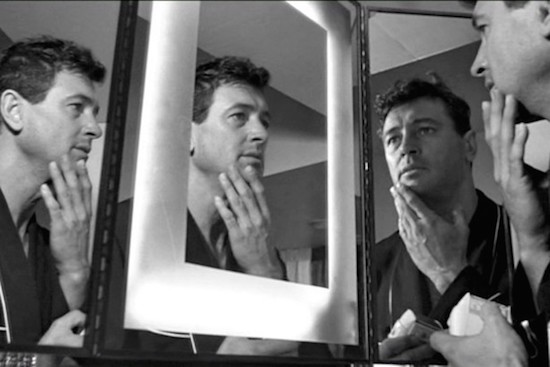
During this time, from 1962 to 1965, Wilson had been a one-man hit factory, churning out Top Ten singles by the month and leading the Beach Boys on grueling, sold-out concert tours. A “people pleaser,” as his mother would later call him, the sensitive, introspective Wilson worked increasingly hard to become the consummate pop craftsman, driven by the need to please his abusive, tyrannical father (a failed songwriter), his family (the Beach Boys consisted of his two brothers, his cousin, and a childhood friend), and the executives in “the Tower” (Capitol Records’ iconic building). Along the way, like Hamilton, he lost track of himself.
It will be a transition from this present work. You see, you don’t have to prove anything anymore. You are accepted. You will be in your own new dimension… absolved of all responsibility except to your own interests. — “Rebirth” company psychiatrist, describing Arthur Hamilton’s new life as artist Tony Wilson, in Seconds
The parallels do not end there. In Seconds, Rock Hudson suffers an anxiety attack on an airplane (after a stewardess says, “Hello, Mr. Wilson”) on his way from Malibu to visit his old family house, where, posing as a friend of Arthur Hamilton, he will speak to his former wife in order to recover some semblance of his lost self. After reminiscing about his previous incarnation with his “widow” (who now looks old enough to be his mother), Hudson resolves to return to the company and make a fresh start in another new identity. In December 1964, on a flight at the beginning of a Beach Boys tour, Brian Wilson had a nervous breakdown. The next day he flew back to Los Angeles, asking that his mother pick him up at the airport. When he arrived he demanded to be taken back to his childhood home in Hawthorne, which was empty but had not yet been sold. There, he had a soul-searching talk with his mother, during which he decided to stop touring with the Beach Boys so he could stay home and focus on writing and production.
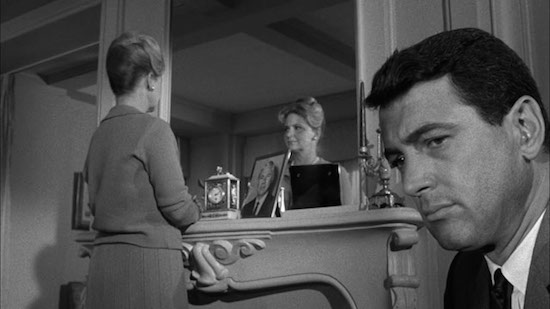
Earlier in the film, Hudson is taken by his new (company-hired) girlfriend to a Dionysian festival, at which naked neo-pagan hippies cavort in a massive vat of grapes. At first, the conservative, out-of-place Hudson resists his girlfriend’s pleas to join her in the vat. Eventually stripped and thrown in by the other revelers, Hudson finally relaxes, starts drinking, and begins to enjoy himself — he is baptized in his new identity. Relieved of his concert duties in 1965, Wilson immersed himself in creating increasingly sophisticated music for the Beach Boys; not coincidentally, he was also being indoctrinated into LA’s burgeoning counterculture through various new hip friends and hangers-on. Against the protests of his wife, Wilson was encouraged by his bohemian friends to try pot, speed, and acid. Given LSD by a friend, Wilson “saw God” in a profound, life-altering experience that he would later say “tore his head off.” Despite John Lennon’s assurances about LSD on Revolver (“It is not dying”), Wilson was more than likely referring to his first acid trip — signifying his transformation from square to hip, from innocence to experience — when he claimed he saw his “death and rebirth” reflected in Seconds.
Dionysian stirrings arise either through the influence of those narcotic potions of which all primitive races speak in their hymns, or through the powerful approach of spring, which penetrates with joy the whole frame of nature. So stirred, the individual forgets himself completely…. His Apollonian consciousness was but a thin veil hiding from him the whole Dionysian realm. — Friedrich Nietzsche, The Birth of Tragedy
Nietzsche would have hated Pet Sounds. He would have regarded it as the ne plus ultra of overwrought Apollonian schmaltz. In The Birth of Tragedy, he outlines two conflicting drives in ancient Greek culture: the Apollonian, which promotes rational order, moral rectitude, naïve optimism, and the individual will of man; and the Dionysian, which advocates the derangement of the senses, amorality, existential nihilism, and the instinctual will of nature. Nietzsche derived his concept of the Dionysian from Schopenhauer’s view that irrational forces reside at the foundation of all creativity and of reality itself, and his concept of the Apollonian from Schopenhauer’s Principium individuationis (individual principle), what we would loosely call the ego, which allows man to distinguish himself from others and protects him from the disordered nature of reality.
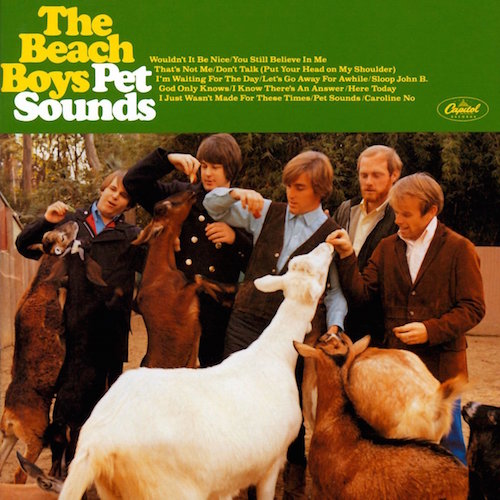
Nietzsche lamented the suppression of the Dionysian in European culture since Socrates, and he would have pointed to the Beach Boys as evidence of a new, appallingly cheery American strain of the Apollonian — all surf, sun, and fun, fun, fun: ancient Greece repackaged as Waikiki — taking special note of Wilson’s mastery as an arranger by the time of Pet Sounds, his ability to teach session musicians and the Beach Boys the complex parts he had previously worked out “in his head,” and his perfectionist production style. (Although Mike Love is generally an unreliable commentator on the history of the Beach Boys, he was not altogether incorrect when he called Pet Sounds “Brian’s ego music.”) Tellingly, one Pet Sounds track, “I Know There’s an Answer” (itself an Apollonian sentiment), was originally called “Hang on to Your Ego.” In it, Wilson admonishes those who “isolate their heads and stay in their safety zones” with the chiding chorus, “Hang on to your ego / Hang on, but I know that you’re gonna lose the fight.” He might as well have been addressing himself.
If Nietzsche had been alive to write an updated, 1967 edition of The Birth of Tragedy, he would have been much encouraged, as he was in 1872 by the Dionysian stirrings he heard in Wagner, by the music of the Doors. Indeed, the entire history of late-’60s LA pop could be read as a shift from the sunny, healing Apollonian symphonies of Brian Wilson to the dark, disorienting, Dionysian cabaret of Jim Morrison. The Doors released their debut album in January 1967, and it was during that winter that Smile, and Wilson himself, began to unravel.
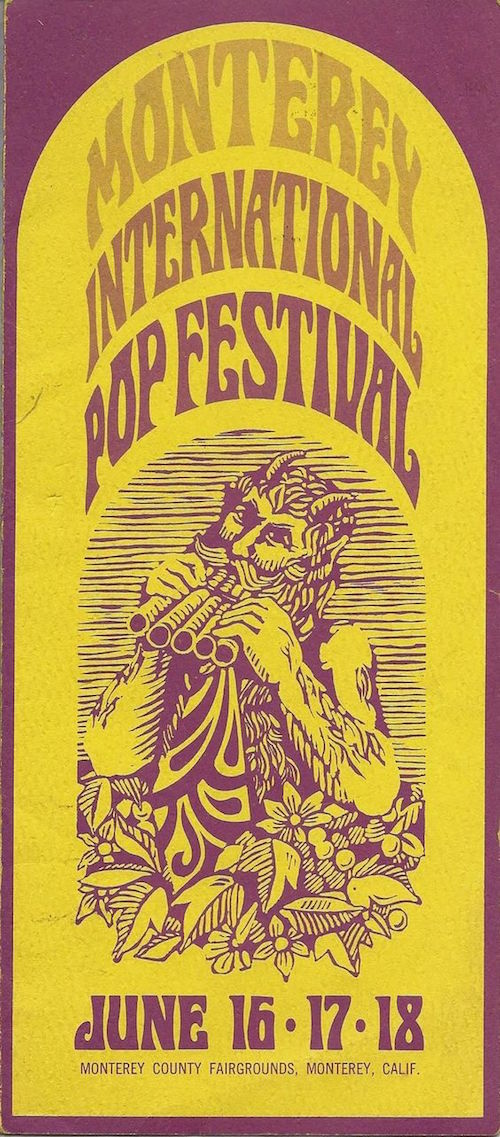
As winter gave way to spring, Wilson was dropping acid, recording discrete modules of the Smile tracks as he had for “Good Vibrations” (intending to “order” them later), and, through the LA hipoisie who had gathered around him to watch his next masterwork unfold, becoming aware of a Dionysian youth movement swelling under his feet. His work became erratic, his collaborator Van Dyke Parks left and returned and left again, and, one by one, his other hip friends abandoned him, alienated by his increasingly paranoid behavior and sensing impending disaster. In early June, right before the Monterey Pop Festival, at which the Beach Boys were scheduled to play and which, appropriately, featured an image of Pan on its promotional fliers, Wilson inexplicably scrapped the Smile project, returning to the studio with the Beach Boys, rather than session musicians, to re-record tracks for Smile’s anemic twin, Smiley Smile.
Over the years, many theories have been floated to explain Wilson’s inability to finish Smile and his subsequent withdrawal from public life in the ’70s: drugs; mental illness; artistic self-consciousness; conflicts with Mike Love and the other Beach Boys; the Boys’ 1967 royalty lawsuit against Capitol Records; the band’s no-show at the Monterey Pop Festival; the overnight shift in countercultural tastes, at that very festival, from LA’s “manufactured” pop to San Francisco’s “organic” improvisatory psychedelia; the release of Sgt. Pepper’s Lonely Hearts Club Band; Jimi Hendrix’s pronouncement on Are You Experienced? that “You’ll never hear surf music again”; even, according to a critic for Art Issues, “the psychic fallout D.H. Lawrence finds in the great novels of Hawthorne and Melville,” in which “indigenous New World demons exact a deadening poetic justice upon any American cultural effort that seeks to combine ‘spiritual’ with ‘white.’”
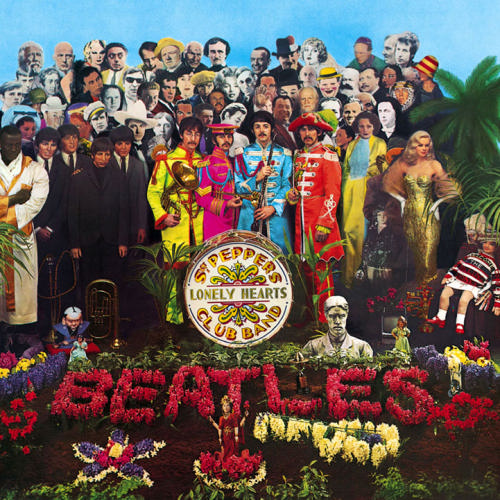
But perhaps Wilson’s story is merely a classic tragedy, the case of a fragile Apollonian soul exposed too quickly to a roiling Dionysian reality. As Schopenhauer put it in The World as Will and Idea, summarizing the breakdown of the individual principle, of egoism, in the tragic figure: “The complete knowledge of the nature of the world, which has a quieting effect on the will, produces resignation, the surrender not merely of life, but of the very will to live.” Through the ego death of LSD, Wilson’s Apollonian veil was lifted. Like Hudson in Seconds, he “died” and was “reborn” into a new Dionysian community of free will and unbounded pleasure to which his nature was ultimately unsuited. As in Seconds, it destroyed him. Both men end up “killed” by the very company that made them — Hudson by “rebirth” executives, Wilson by teenyboppers who grew up to be hippies.
Maybe the proof was already in the pudding. Describing a man caught in the veil of Maya (the Hindu goddess of illusion that Nietzsche related to Apollo), Schopenhauer wrote: “Even as on an immense, raging sea, assailed by huge wave crests, a man sits in a little rowboat trusting his frail craft, so amidst the furious torments of this world, the individual sits tranquilly, supported by the Principium individuationis and relying on it.” Parks’s lyric to the Smile masterpiece “Surf’s Up” echoed this tenuous Apollonian state and seemingly urged Wilson to join the Dionysian spring:
Surf’s up
Aboard a tidal wave
Come about hard and join
The young and often spring you gave
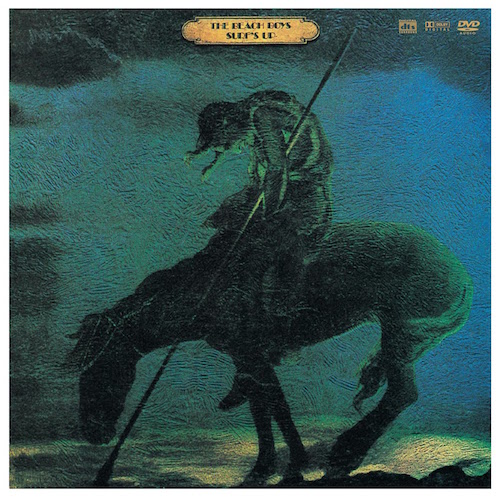
“Surf’s Up” would not be released until 1971, in a collaged version from various sessions, on an album of the same name. Appropriately, this record also contained the haunting, elegiac “Till I Die,” Wilson’s last truly great song, in which he reflected on the disintegration of his self, post-Smile — his inability to hang on to his ego, his Apollonian craft, aboard the LSD-fueled, Dionysian tidal wave of 1967:
I’m a cork on the ocean
Floating over a raging sea
How deep is the ocean?
How deep is the ocean?
I lost my way
In the words of unlikely fan John Cale, who paid tribute to Wilson in song on his 1975 album Slow Dazzle, “I believe you, Mr. Wilson.”
Originally published in Tin House, Issue #10, “Music Issue” (2002).
CURATED SERIES at HILOBROW: UNBORED CANON by Josh Glenn | CARPE PHALLUM by Patrick Cates | MS. K by Heather Kasunick | HERE BE MONSTERS by Mister Reusch | DOWNTOWNE by Bradley Peterson | #FX by Michael Lewy | PINNED PANELS by Zack Smith | TANK UP by Tony Leone | OUTBOUND TO MONTEVIDEO by Mimi Lipson | TAKING LIBERTIES by Douglas Wolk | STERANKOISMS by Douglas Wolk | MARVEL vs. MUSEUM by Douglas Wolk | NEVER BEGIN TO SING by Damon Krukowski | WTC WTF by Douglas Wolk | COOLING OFF THE COMMOTION by Chenjerai Kumanyika | THAT’S GREAT MARVEL by Douglas Wolk | LAWS OF THE UNIVERSE by Chris Spurgeon | IMAGINARY FRIENDS by Alexandra Molotkow | UNFLOWN by Jacob Covey | ADEQUATED by Franklin Bruno | QUALITY JOE by Joe Alterio | CHICKEN LIT by Lisa Jane Persky | PINAKOTHEK by Luc Sante | ALL MY STARS by Joanne McNeil | BIGFOOT ISLAND by Michael Lewy | NOT OF THIS EARTH by Michael Lewy | ANIMAL MAGNETISM by Colin Dickey | KEEPERS by Steph Burt | AMERICA OBSCURA by Andrew Hultkrans | HEATHCLIFF, FOR WHY? by Brandi Brown | DAILY DRUMPF by Rick Pinchera | BEDROOM AIRPORT by “Parson Edwards” | INTO THE VOID by Charlie Jane Anders | WE REABSORB & ENLIVEN by Matthew Battles | BRAINIAC by Joshua Glenn | COMICALLY VINTAGE by Comically Vintage | BLDGBLOG by Geoff Manaugh | WINDS OF MAGIC by James Parker | MUSEUM OF FEMORIBILIA by Lynn Peril | ROBOTS + MONSTERS by Joe Alterio | MONSTOBER by Rick Pinchera | POP WITH A SHOTGUN by Devin McKinney | FEEDBACK by Joshua Glenn | 4CP FTW by John Hilgart | ANNOTATED GIF by Kerry Callen | FANCHILD by Adam McGovern | BOOKFUTURISM by James Bridle | NOMADBROW by Erik Davis | SCREEN TIME by Jacob Mikanowski | FALSE MACHINE by Patrick Stuart | 12 DAYS OF SIGNIFICANCE | 12 MORE DAYS OF SIGNIFICANCE | 12 DAYS OF SIGNIFICANCE (AGAIN) | ANOTHER 12 DAYS OF SIGNIFICANCE | UNBORED MANIFESTO by Joshua Glenn and Elizabeth Foy Larsen | H IS FOR HOBO by Joshua Glenn | 4CP FRIDAY by guest curators
